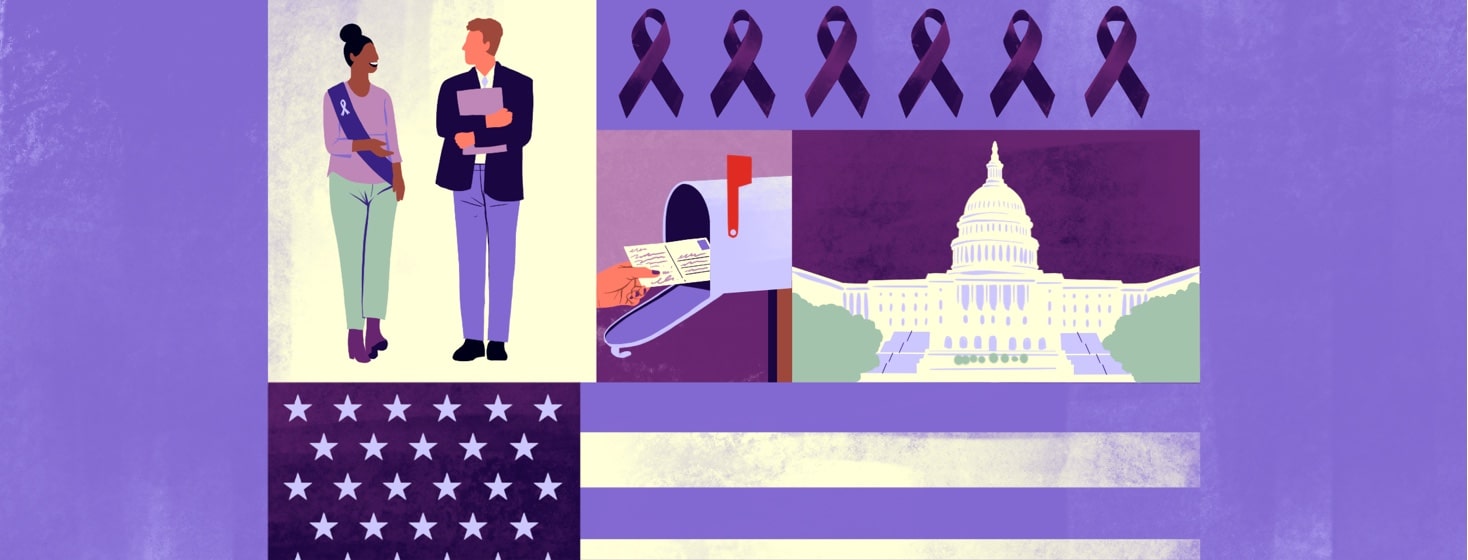How to Become an Alzheimer's Advocate
A few months ago, I had the sincere pleasure to work with one of my local representatives to help create awareness for the Walk to End Alzheimer’s.
My state senator, Maria Collett, answered my call to create a video in support of the Philadelphia Walk to End Alzheimer’s. Though I had created this program so other advocates could use it and reach out to their legislators, Sen. Collett is the one who answered my call.
I am extremely proud to have my state senator representing my interests, knowing that she would take the time out of her schedule to create a video to support this cause, taking it on as her own. It’s wonderfully gratifying and so I wanted to share with you a little bit more about how to get involved in such an endeavor.
Why get government involved?
There are a few areas in which government entities can help to solve some of the problems that Alzheimer’s creates.
- First and foremost, it provides funding for research to find a cure. For the 2020 fiscal year, Congress approved a $350 million dollar increase for the National Institutes of Health to spend on Alzheimer’s disease, bringing the total to $2.8 billion.1
- Second, legislators can help to provide solutions for care, where it is severely lacking. At a recent advocacy event that I attended in Harrisburg, my fellow advocates were voicing problems that they encounter as they live their lives affected by Alzheimer’s disease and caring for someone who has Alzheimer’s disease. They did this in the hopes that legislation can be drafted to help to fill in the care gaps.
- Third, they can support and vote for legislation, such as the 'Promoting Alzheimer’s Awareness to Prevent Elder Abuse' Act. This legislation, which was passed by the Senate in August 2020 and the House in October 2020, puts in place steps for the Department of Justice to create training materials for first responders and other professionals that would inform them of how to help victims of elder abuse who are living with Alzheimer’s and other dementias.2
How to get government involved
The Alzheimer’s Association partner organization, Alzheimer’s Impact Movement, provides the ways that you can get involved by speaking to our elected officials about the needs of those who have Alzheimer’s.
It can be as simple as sending a postcard with your name to your representatives letting them know that these are issues that you care about and as involved as regularly visiting your elected officials to meet with them, discuss the issues and thank them for their support. The latter individuals are known as champions within the AIM organization. Champions send emails, visit local offices, and walk around the capitols wearing purple sashes and chatting up legislators who can, and will, make a difference.
At that same trip to Harrisburg, I was inspired by the people I saw there. Among them was an Alzheimer’s patient herself. She exhibited such great poise on the day, despite being in a new place, surrounded by strangers, in a, sometimes dark, building in the middle of Pennsylvania. She was there with members of her family, among them, her full-time caregiver. They explained to our elected officials that they were lucky to be able to have one of their loved ones stay home to provide full-time care, but that others aren’t so lucky. There’s a gap in care available, they informed the legislator, that many middle-class families cannot make the leap over and they asked him to help.
We will succeed
We talked to many elected officials that day, sharing our stories and the stories of our friends. Some calls to action have more immediate results, like the one that started out this blog post, whereas some will take longer to manifest themselves. We hope to see the fruits of this labor bear out as the days go on. I’m sure we will succeed because we are as tireless as the disease we are fighting.

Join the conversation